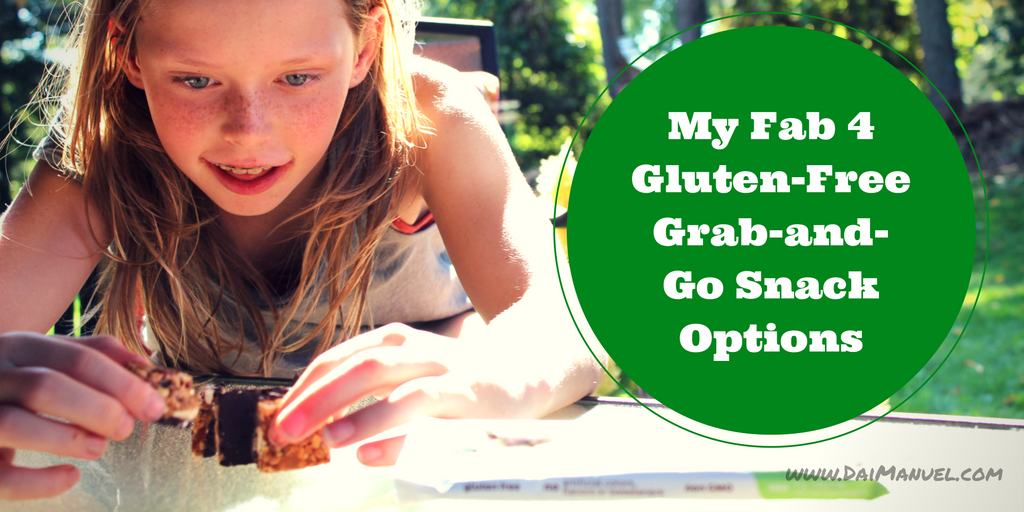Is a Gluten Free Lifestyle for me? #TryALittleGoodness
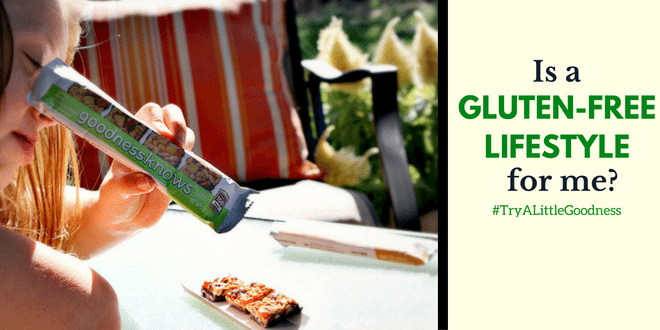
Since being diagnosed with Autoimmune Neutropenia (AIN)
a number of years ago, I've been leading a lifestyle that supports reducing inflammation in my body. I've been successful so far by adopting a number of healthy habits, but none have made as much impact as my nutrition choices - in particular, limiting my gluten intake to a minimum.
Gluten is a protein found in wheat, barley and rye, which means it is also in starchy carbohydrates, like bread and pasta. In fact, it’s the thing that gives elasticity to dough. Most people can tolerate this protein in their normal diet, but approximately 1 in 133 people in developed nations have an intolerance to gluten. When people with a gluten intolerance ingest this protein, they may experience adverse physical reactions. Varying degrees of gluten sensitivities exist from gluten intolerance (not an allergy) to Celiac Disease (a serious allergy), and knowing the varying degrees can be problematic at best. To help with identifying the varying levels of gluten intolerance, check out Chris Kresser's article 50 Shades of Gluten (Intolerance).
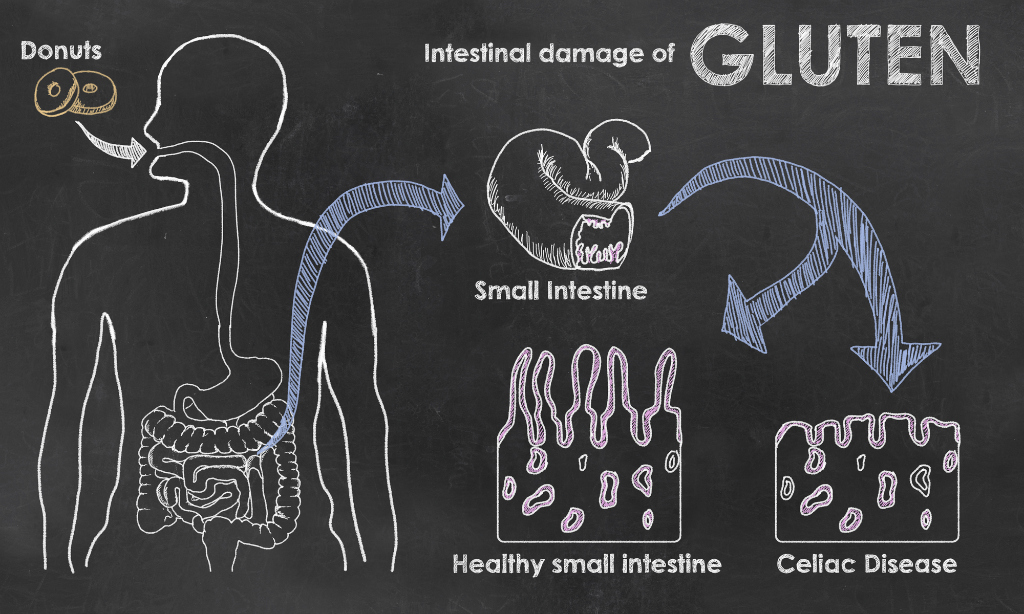
Celiac Disease on the other hand is far more serious than an intolerance/sensitivity. Celiac Disease is a medical condition which causes a serious autoimmune response in those with a gluten allergy. Classified as a digestive disease, when celiacs eat products containing gluten they experience damages to the small intestine, which interferes with absorption of nutrients from food. People who have celiac disease cannot tolerate gluten at all. And where some of the issues lie is that beyond the standard products like bread and pastas, gluten can also be found in everyday products like condiments, sauces, alcoholic beverages, medicines, vitamins and even lip balms. Knowing what to look for can be challenging but here's an amazing fact sheet to help you with knowing what to look for when shopping.
[toggle title="Gluten - a broader definition" state="close"]
Gluten (from Latin gluten, "glue") is a protein composite found in wheat and related grains, including barley, rye, and spelt. Gluten gives elasticity to dough, helping it rise and keep its shape and often gives the final product a chewy texture. Gluten is used in cosmetics, hair products, and other dermatological preparations.
[caption id="attachment_15414" align="aligncenter" width="432"]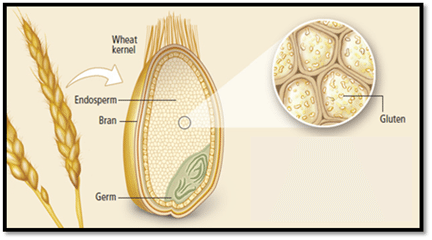 What is gluten and where is it found? What is Gluten. Gluten is a protein naturally found in certain grains such as wheat, barley, and rye.[/caption]
What is gluten and where is it found? What is Gluten. Gluten is a protein naturally found in certain grains such as wheat, barley, and rye.[/caption]
Gluten is the composite of a gliadin and a glutenin, which is conjoined with starch in the endosperm of various grass-related grains. The prolamin and glutelin from wheat (gliadin, which is alcohol-soluble, and glutenin, which is only soluble in dilute acids or alkalis) constitute about 80% of the protein contained in wheat fruit. Being insoluble in water, they can be purified by washing away the associated starch. Worldwide, gluten is a source of protein, both in foods prepared directly from sources containing it, and as an additive to foods otherwise low in protein.
The fruit of most flowering plants have endosperms with stored protein to nourish embryonic plants during germination. True gluten, with gliadin and glutenin, is limited to certain members of the grass family. The stored proteins of maize and rice are sometimes called glutens, but their proteins differ from true gluten.
Celiac Disease is a medical condition which causes a serious autoimmune response in those with a gluten allergy. These people aside, many are going "gluten free" based on something they've read or heard, so the Jimmy Kimmel Live show took to the street, surveying some gluten-free practitioners to see if they knew the answer to a simple question: " What is Gluten?" Here's their responses...
http://youtu.be/AdJFE1sp4Fw
[/toggle]
Gluten intolerance is a serious disease that negatively impacts many people. There's more and more individuals, who don't have a problem with gluten, opting to go gluten-free as they are starting to see the health benefits of cutting this protein out of their diet.
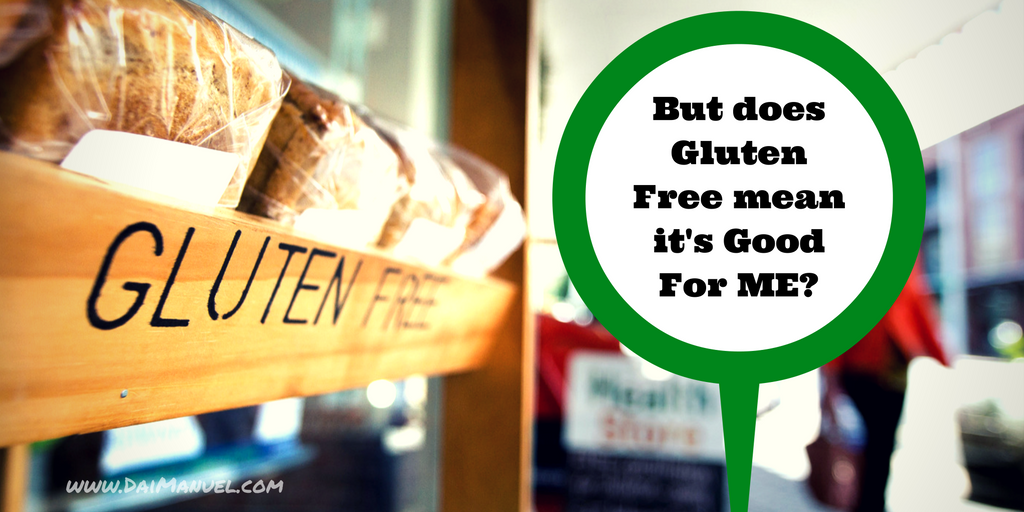
When I removed gluten from my diet in an effort to reduce inflammation in my body, I can't say for certain that it was solely because of the lack of gluten. In fact for many people, by removing gluten from the diet you eliminate a ton of foods that are overly processed and full of sugars. At least this was what I experienced in my case. Opting for foods and snacks that were gluten-free meant I would buy more whole foods and prepare my own meals, taking care to watch what I was eating in the process. Doesn't take long for one to FEEL and eventually see the difference this makes both physically and psychologically. I not only felt more energetic, started to sleep better and noticed less bloating after meals, but I also saw my autoimmune neutropenia symptoms reduced and in some cases eliminated entirely.
Word of caution -- just because something is gluten-free doesn't necessarily mean it's good for you. " Gluten-Free " products are flooding the marketplace. No matter where you shop today, every aisle of the supermarket showcases gluten-free options. It's estimated by 2017 the total yearly sales in the "Gluten-free" category will exceed $6.6 Billion ! Many products in the grocery aisles may say they are free of gluten, but look closely at the labels as they've added in a ton of sugar and in many cases a fair bit of unhealthy fats too.
Whether you are gluten-free due to allergies or just because you want less gluten-rich foods in your diet, you’ll want delicious treats to snack on. Although you can replace grains that contain gluten with those that don’t (i.e. corn, flax, millet and rice) it is difficult to find yummy treats that are gluten-free.
I've been a fan of goodnessknows "better for you" products for a long time now. So when they asked me to help spread the word about them going "gluten free" I said sign me up. It's not every day I find a quick, healthy ready-made snack option to go. Apart from being free from gluten, they contain no artificial colorants, flavors or sweeteners, no fructose corn syrup and only add up to a total of 150 calories (for 4 squares).
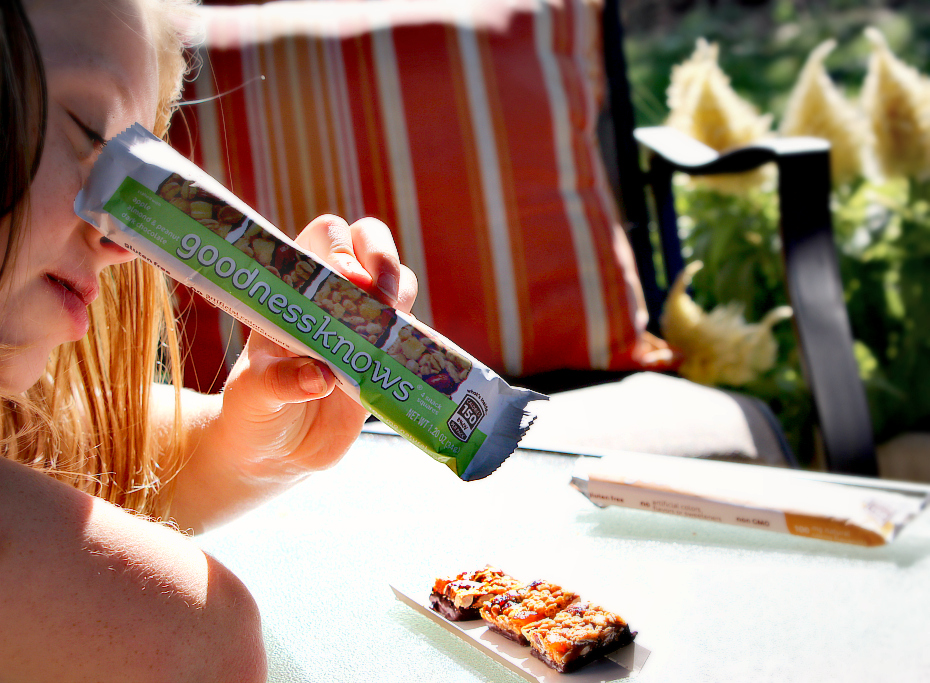
I also need to emphasize that goodnessknows snack squares are packed with a mouthwatering natural cocoa flavor. Their cocoa beans are hand selected, using their own patented approach to retain more of the naturally occurring phytonutrients, also known as cocoa flavanols. Phytonutrients are compounds that help plants stay healthy. While flavanols are phytonutrients that are found in apples, cherries, grapes, and teas, they’re also found in cocoa, which has a unique mixture of flavanols - a combination that can only be found in cocoa.
Whether you choose to try reducing your gluten intake or not, there's definitely some merit to opting for healthier options when it comes to your dietary choices. If you opt to try going gluten-free, just try it for a month and see how you feel. I know what started as a 1-month trial has turned into a lifestyle for me and I don't plan to ever go back. See you in the gluten free aisle soon.
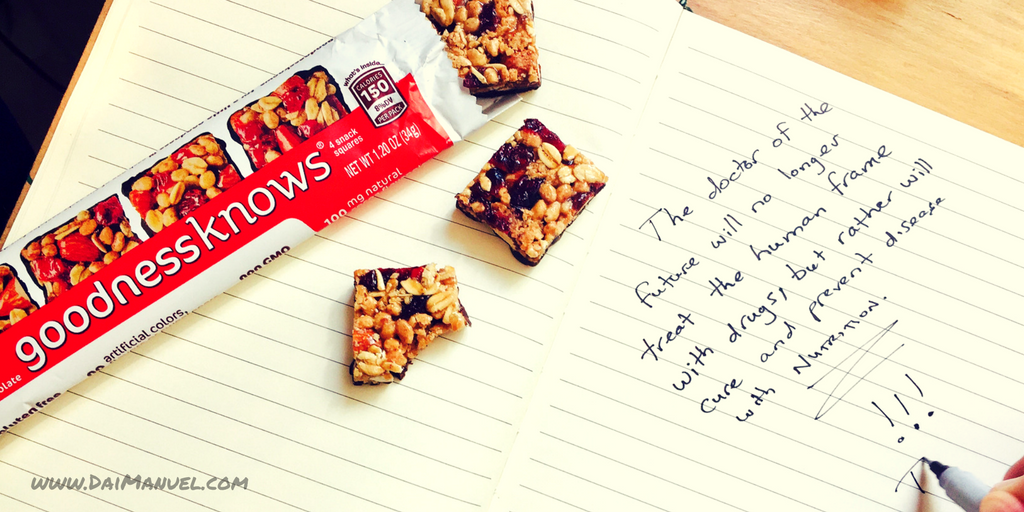
[divider style="dashed" top="30" bottom="30"]
This is a sponsored conversation written by me on behalf of goodnessknows. The opinions and text are all mine.
[divider style="dashed" top="30" bottom="30"]
[box type="info" align="aligncenter" class="" width=""]
In case you missed my previous goodnessknows inspired posts, be sure to check out 5 Steps to Take Family Fitness from Good to Great & the 10-Point Check List for the Goodness of Bike-to-Work Commuting.


[/box]
[divider style="dashed" top="30" bottom="30"]
 This is a sponsored conversation written by me on behalf of goodnessknows. The opinions and text are all mine.
This is a sponsored conversation written by me on behalf of goodnessknows. The opinions and text are all mine.
And to be absolutely clear, this is my disclaimer: “Just so you know, I have been compensated to share my ideas on this topic. Sometimes it is in the form of products, or services or even money… But here’s the thing; I won’t share anything with you that I don’t fully support. It doesn't matter what it is, or how much they are willing to give me, if I don’t believe in it, It won’t be on my site. Seriously. You’ll just have to trust me on this.” ~ Coach Moose
[divider style="dashed" top="30" bottom="30"]
What is gluten? And what's the difference between a gluten sensitivity versus a gluten allergy?
Gluten is a protein found in wheat, barley and rye, which means it is also in starchy carbohydrates, like bread and pasta. In fact, it’s the thing that gives elasticity to dough. Most people can tolerate this protein in their normal diet, but approximately 1 in 133 people in developed nations have an intolerance to gluten. When people with a gluten intolerance ingest this protein, they may experience adverse physical reactions. Varying degrees of gluten sensitivities exist from gluten intolerance (not an allergy) to Celiac Disease (a serious allergy), and knowing the varying degrees can be problematic at best. To help with identifying the varying levels of gluten intolerance, check out Chris Kresser's article 50 Shades of Gluten (Intolerance).

Celiac Disease on the other hand is far more serious than an intolerance/sensitivity. Celiac Disease is a medical condition which causes a serious autoimmune response in those with a gluten allergy. Classified as a digestive disease, when celiacs eat products containing gluten they experience damages to the small intestine, which interferes with absorption of nutrients from food. People who have celiac disease cannot tolerate gluten at all. And where some of the issues lie is that beyond the standard products like bread and pastas, gluten can also be found in everyday products like condiments, sauces, alcoholic beverages, medicines, vitamins and even lip balms. Knowing what to look for can be challenging but here's an amazing fact sheet to help you with knowing what to look for when shopping.
[toggle title="Gluten - a broader definition" state="close"]
Gluten (from Latin gluten, "glue") is a protein composite found in wheat and related grains, including barley, rye, and spelt. Gluten gives elasticity to dough, helping it rise and keep its shape and often gives the final product a chewy texture. Gluten is used in cosmetics, hair products, and other dermatological preparations.
[caption id="attachment_15414" align="aligncenter" width="432"]
 What is gluten and where is it found? What is Gluten. Gluten is a protein naturally found in certain grains such as wheat, barley, and rye.[/caption]
What is gluten and where is it found? What is Gluten. Gluten is a protein naturally found in certain grains such as wheat, barley, and rye.[/caption]Gluten is the composite of a gliadin and a glutenin, which is conjoined with starch in the endosperm of various grass-related grains. The prolamin and glutelin from wheat (gliadin, which is alcohol-soluble, and glutenin, which is only soluble in dilute acids or alkalis) constitute about 80% of the protein contained in wheat fruit. Being insoluble in water, they can be purified by washing away the associated starch. Worldwide, gluten is a source of protein, both in foods prepared directly from sources containing it, and as an additive to foods otherwise low in protein.
The fruit of most flowering plants have endosperms with stored protein to nourish embryonic plants during germination. True gluten, with gliadin and glutenin, is limited to certain members of the grass family. The stored proteins of maize and rice are sometimes called glutens, but their proteins differ from true gluten.
Celiac Disease is a medical condition which causes a serious autoimmune response in those with a gluten allergy. These people aside, many are going "gluten free" based on something they've read or heard, so the Jimmy Kimmel Live show took to the street, surveying some gluten-free practitioners to see if they knew the answer to a simple question: " What is Gluten?" Here's their responses...
http://youtu.be/AdJFE1sp4Fw
[/toggle]
Is a Gluten-Free Lifestyle for me?
Gluten intolerance is a serious disease that negatively impacts many people. There's more and more individuals, who don't have a problem with gluten, opting to go gluten-free as they are starting to see the health benefits of cutting this protein out of their diet.

When I removed gluten from my diet in an effort to reduce inflammation in my body, I can't say for certain that it was solely because of the lack of gluten. In fact for many people, by removing gluten from the diet you eliminate a ton of foods that are overly processed and full of sugars. At least this was what I experienced in my case. Opting for foods and snacks that were gluten-free meant I would buy more whole foods and prepare my own meals, taking care to watch what I was eating in the process. Doesn't take long for one to FEEL and eventually see the difference this makes both physically and psychologically. I not only felt more energetic, started to sleep better and noticed less bloating after meals, but I also saw my autoimmune neutropenia symptoms reduced and in some cases eliminated entirely.
But does Gluten-Free mean it's Good For ME?
Word of caution -- just because something is gluten-free doesn't necessarily mean it's good for you. " Gluten-Free " products are flooding the marketplace. No matter where you shop today, every aisle of the supermarket showcases gluten-free options. It's estimated by 2017 the total yearly sales in the "Gluten-free" category will exceed $6.6 Billion ! Many products in the grocery aisles may say they are free of gluten, but look closely at the labels as they've added in a ton of sugar and in many cases a fair bit of unhealthy fats too.
Whether you are gluten-free due to allergies or just because you want less gluten-rich foods in your diet, you’ll want delicious treats to snack on. Although you can replace grains that contain gluten with those that don’t (i.e. corn, flax, millet and rice) it is difficult to find yummy treats that are gluten-free.
My Fab 4 Gluten-Free Grab-and-Go Snack Options
- Roast-beef and Avocado Roll-up: take a thinly sliced piece of roast beef and place your wedge of avocado in the middle. Spread the avocado across the roast beef, roll it up and get ready for some yummy goodness.
- Apple wedges with nut butter
- Almonds and Fruit Kabobs
- goodnessknows snack squares- and yes, all 3 flavors are now gluten free. Not only are these delicious little snack squares filled with whole nuts, real fruit, toasted oats, dark chocolate (flavanols) AND have no artificial colors, flavors or sweeteners, going gluten free is just another small step goodnessknows snack squares is taking to go from good to great. (Just make sure to keep an eye out for new product packaging in store that is marked with 'gluten free' on the label)
I've been a fan of goodnessknows "better for you" products for a long time now. So when they asked me to help spread the word about them going "gluten free" I said sign me up. It's not every day I find a quick, healthy ready-made snack option to go. Apart from being free from gluten, they contain no artificial colorants, flavors or sweeteners, no fructose corn syrup and only add up to a total of 150 calories (for 4 squares).

I also need to emphasize that goodnessknows snack squares are packed with a mouthwatering natural cocoa flavor. Their cocoa beans are hand selected, using their own patented approach to retain more of the naturally occurring phytonutrients, also known as cocoa flavanols. Phytonutrients are compounds that help plants stay healthy. While flavanols are phytonutrients that are found in apples, cherries, grapes, and teas, they’re also found in cocoa, which has a unique mixture of flavanols - a combination that can only be found in cocoa.
So are you thinking of trying a gluten free lifestyle?
Whether you choose to try reducing your gluten intake or not, there's definitely some merit to opting for healthier options when it comes to your dietary choices. If you opt to try going gluten-free, just try it for a month and see how you feel. I know what started as a 1-month trial has turned into a lifestyle for me and I don't plan to ever go back. See you in the gluten free aisle soon.

[divider style="dashed" top="30" bottom="30"]
This is a sponsored conversation written by me on behalf of goodnessknows. The opinions and text are all mine.
[divider style="dashed" top="30" bottom="30"]
[box type="info" align="aligncenter" class="" width=""]
In case you missed my previous goodnessknows inspired posts, be sure to check out 5 Steps to Take Family Fitness from Good to Great & the 10-Point Check List for the Goodness of Bike-to-Work Commuting.


[/box]
[divider style="dashed" top="30" bottom="30"]
 This is a sponsored conversation written by me on behalf of goodnessknows. The opinions and text are all mine.
This is a sponsored conversation written by me on behalf of goodnessknows. The opinions and text are all mine.
And to be absolutely clear, this is my disclaimer: “Just so you know, I have been compensated to share my ideas on this topic. Sometimes it is in the form of products, or services or even money… But here’s the thing; I won’t share anything with you that I don’t fully support. It doesn't matter what it is, or how much they are willing to give me, if I don’t believe in it, It won’t be on my site. Seriously. You’ll just have to trust me on this.” ~ Coach Moose
[divider style="dashed" top="30" bottom="30"]

